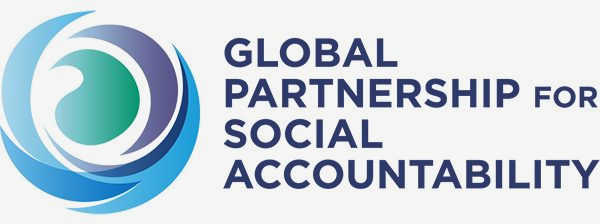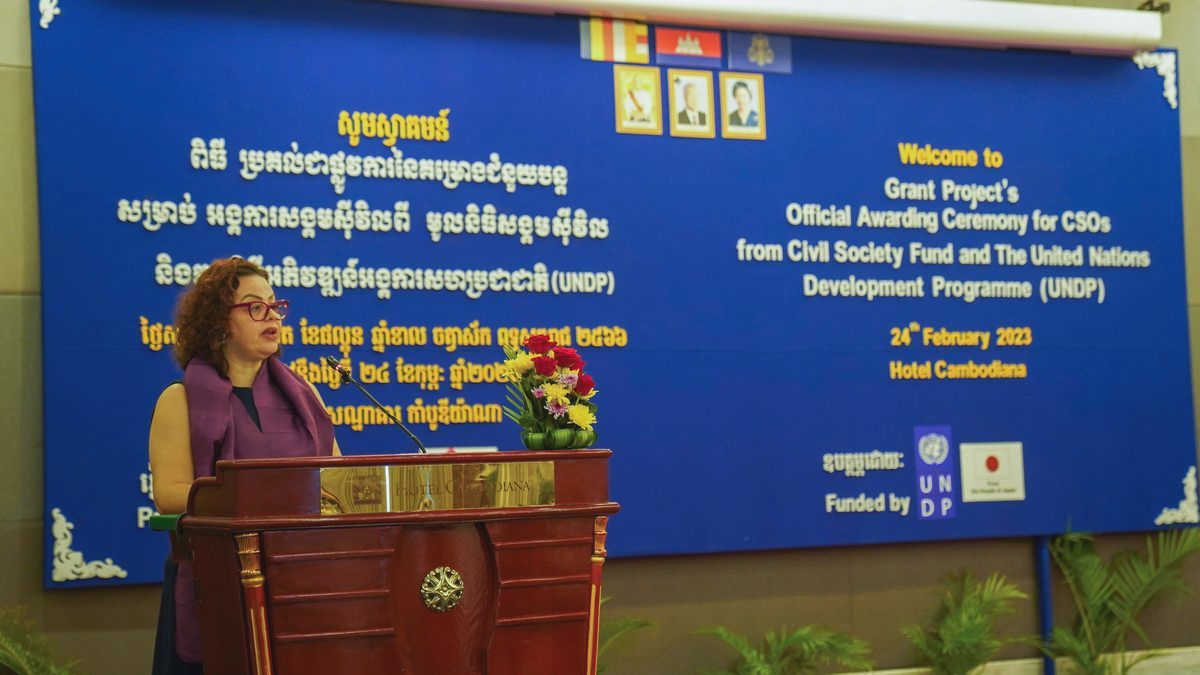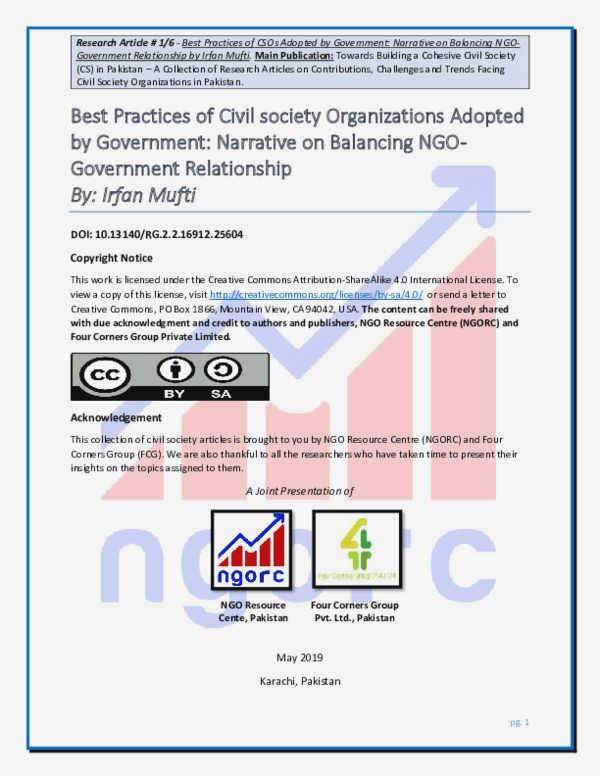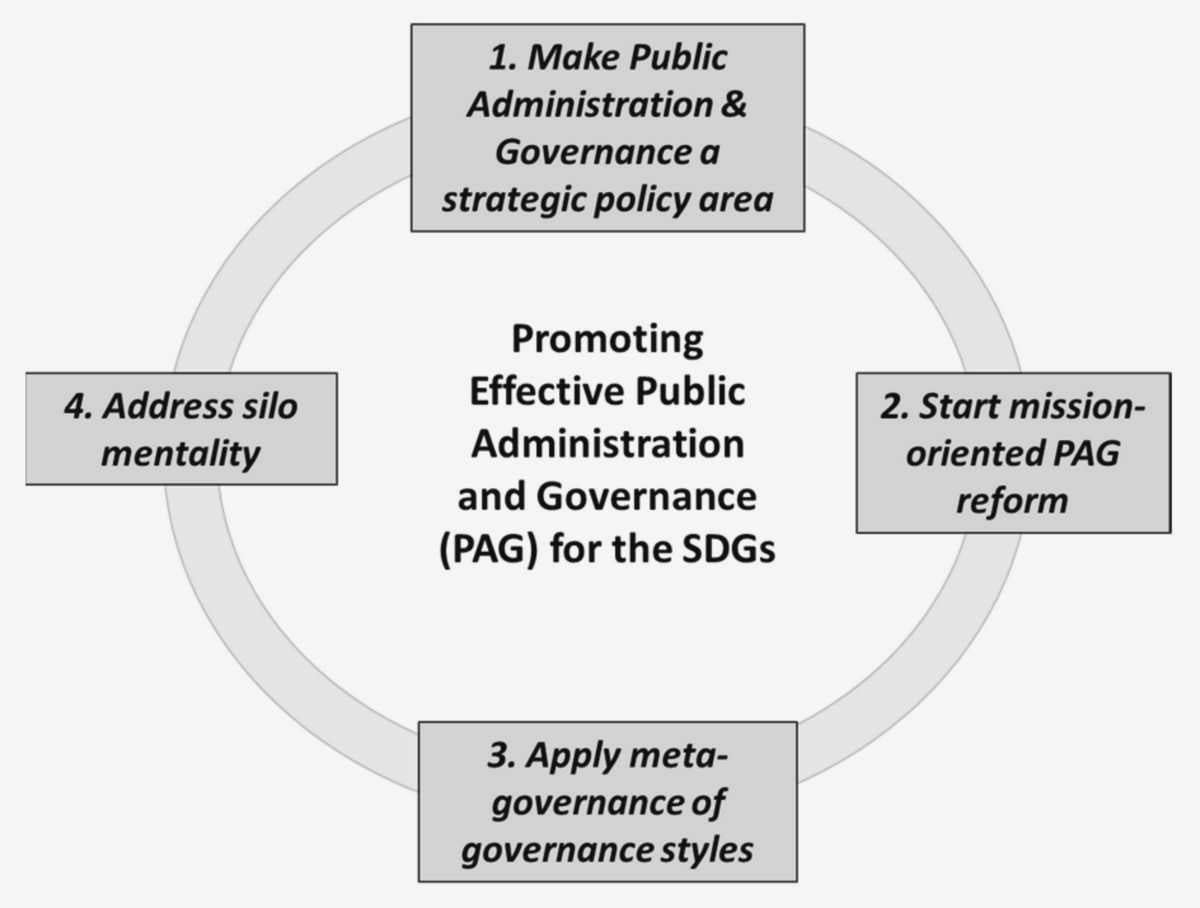Government grants can be a vital source of funding for civil society organizations, providing them with the necessary resources to implement projects and initiatives that have a positive impact on communities. However, navigating the world of government grants can be challenging, with complex application processes, stringent eligibility criteria, and intense competition. In this article, we will provide insider tips and best practices for civil society organizations seeking government grants.
One of the key considerations when applying for government grants is to thoroughly research and understand the eligibility criteria. Each grant program may have specific requirements, such as the geographical area of focus, target beneficiaries, or specific outcomes. It is essential to carefully review these criteria and ensure that your organization aligns with the grant program’s objectives.
Another important aspect to consider is the application process itself. Government grant applications can be lengthy and require detailed information about your organization, project proposal, budget, and expected outcomes. It is crucial to allocate sufficient time and resources to prepare a comprehensive and well-written application that highlights the relevance and impact of your project.

Furthermore, building strong relationships with government agencies and officials can significantly enhance your chances of securing government grants. Attend relevant conferences, workshops, and networking events to connect with key stakeholders in the government sector. Developing personal connections and demonstrating a genuine interest in collaboration can strengthen your organization’s credibility and increase your visibility among decision-makers.
Understanding Government Grants
What are government grants?
Government grants are financial assistance provided by the government to individuals, organizations, or businesses for specific purposes. These grants are typically awarded through a competitive application process, and recipients are required to use the funds for the intended purpose as outlined in the grant agreement. Government grants can be a valuable source of funding for civil society organizations looking to implement programs or initiatives that align with government priorities.
Types of government grants
There are various types of government grants available, each with its own eligibility criteria and funding requirements. Some common types of government grants include:
- Project grants: These grants are awarded to fund specific projects or initiatives that align with government priorities.
- Operating grants: Operating grants are provided to support the ongoing operational expenses of an organization.
- Capacity-building grants: These grants aim to enhance the capabilities and effectiveness of organizations through training, technical assistance, or infrastructure development.
- Research grants: Research grants are awarded to support scientific research and innovation in various fields.
- Capital grants: Capital grants are used to fund the acquisition or improvement of tangible assets such as buildings or equipment.
Applying for government grants
Applying for government grants can be a complex process that requires careful planning and attention to detail. Here are some key steps to consider:

- Research available grants: Start by researching the available grants that align with your organization’s objectives and priorities.
- Review eligibility criteria: Carefully review the eligibility criteria for each grant to ensure your organization meets the requirements.
- Develop a strong proposal: Create a compelling proposal that clearly outlines the project or initiative, its goals, expected outcomes, and budget.
- Submit the application: Follow the application guidelines provided by the government agency and submit the required documents within the specified timeframe.
- Follow-up and reporting: If your application is successful, be prepared to meet reporting requirements and provide regular updates on the progress and impact of the funded project.
Benefits and challenges of government grants
Government grants can provide significant benefits to civil society organizations, including financial support for innovative projects, increased visibility, and access to new resources and networks. However, there are also challenges associated with government grants, such as the competitive nature of the application process, strict reporting requirements, and potential limitations on the use of funds. It is important for organizations to carefully consider these factors and weigh the benefits against the challenges before pursuing government grants.
Identifying Eligibility Criteria
When it comes to navigating government grants for civil society organizations, it is important to understand the eligibility criteria set by the funding body. These criteria serve as guidelines that determine whether an organization is eligible to apply for a particular grant or not. Here are some key points to consider when identifying eligibility criteria:
1. Mission Alignment
One of the main factors in determining eligibility is the alignment of your organization’s mission with the goals of the grant program. The funding body will typically have specific objectives that they aim to achieve through their grants, and organizations whose missions align with these objectives are more likely to be eligible.
2. Geographic Scope
Some grants may have a specific geographic focus, targeting organizations that operate within a certain region or country. It is important to carefully review the grant guidelines to determine if your organization falls within the specified geographic scope.
3. Legal Status
Government grants often require organizations to have a specific legal status, such as being registered as a nonprofit or non-governmental organization. Review the eligibility criteria to ensure that your organization meets the required legal status.

4. Funding Restrictions
Government grants may have certain funding restrictions, such as prohibiting funding for political activities or limiting the use of funds to specific program areas. Make sure to review these restrictions and ensure that your organization can comply with them.
5. Financial Capacity
Some grants may have financial capacity requirements, such as minimum annual budgets or audited financial statements. Be sure to assess whether your organization meets these requirements before applying for the grant.
By carefully reviewing and understanding the eligibility criteria, your organization can determine whether it meets the requirements to apply for a government grant. This will help save time and resources by focusing on grants that are a good fit for your organization.
Researching Grant Opportunities
When it comes to finding grant opportunities for your civil society organization, thorough research is key. There are several strategies you can employ to ensure you are targeting the right grants and maximizing your chances of success.
1. Identify your organization’s mission and goals
Before starting your search, it is important to have a clear understanding of your organization’s mission and goals. This will help you narrow down the grants that align with your objectives. Take the time to articulate your organization’s purpose and identify the specific areas you want to focus on.
2. Explore government databases
Government databases can be a valuable resource for finding grant opportunities. Many governments have dedicated websites or portals that list grants available for civil society organizations. These platforms often allow you to filter grants based on criteria such as location, sector, and funding amount.
3. Join relevant professional networks
Joining professional networks and associations in your field can provide access to valuable information and connections. These networks often share grant opportunities within their communities, increasing your chances of finding relevant funding sources. Attend conferences and events, participate in online forums, and engage with other professionals to stay up to date on grant opportunities.
4. Collaborate with other organizations
Collaborating with other civil society organizations can not only enhance your impact but also increase your access to grant opportunities. By working together on joint projects or initiatives, you may be eligible for larger grants or grants that are specifically targeted towards collaborative efforts.
5. Leverage technology
Technology can streamline your grant research process. Use search engines to find lists of grants, news articles, and blog posts related to funding opportunities in your sector. Utilize online platforms that aggregate grant information from multiple sources, making it easier to find relevant opportunities. Additionally, set up email alerts or subscribe to newsletters that focus on funding opportunities.
6. Stay organized
As you conduct your research, it is important to stay organized. Create a system to track the grants you have explored, including important details such as deadlines, eligibility criteria, and required documentation. This will help you prioritize your efforts and ensure you don’t miss any crucial opportunities.
By following these strategies, you can effectively research grant opportunities for your civil society organization and increase your chances of securing the funding needed to make a meaningful impact.
Preparing a Solid Grant Proposal
Writing a successful grant proposal is key to securing funding for your civil society organization. Here are some important steps to follow in order to prepare a solid grant proposal:
1. Understand the Funder’s Priorities
Before you start writing your grant proposal, take the time to thoroughly research and understand the priorities of the potential funder. What are they looking to fund? What are their goals and objectives? Tailor your proposal to align with their priorities to increase your chances of success.
2. Clearly Define Your Project
Clearly define the scope and objectives of your project in your grant proposal. What problem are you addressing? What are the expected outcomes and impact? Provide a detailed description and a clear timeline for your project. This will help the funder understand the importance of your work.
3. State Your Need for Funding
Clearly articulate why you need funding and how it will be used to support your project. Specify the budget and provide a breakdown of the costs involved. Make a strong case for why your organization is the best fit to address the issue at hand and why the funder should invest in your work.
4. Demonstrate Your Capacity and Expertise
Showcase your organization’s capacity and expertise in the grant proposal. Highlight your track record of successfully implementing similar projects and achieving positive outcomes. Provide evidence of your team’s qualifications and relevant experience. This will help build credibility and trust with the funder.
5. Develop a Realistic Evaluation Plan
Outline a clear and realistic evaluation plan in your grant proposal. This will help the funder understand how you will measure the success and impact of your project. Clearly define the indicators and methodologies you will use to track progress and outcomes. This will demonstrate your commitment to accountability and transparency.
6. Review and Edit
Before submitting your grant proposal, carefully review and edit your work. Check for spelling and grammatical errors. Ensure that all information is accurate and coherent. Consider seeking feedback from colleagues or mentors to strengthen your proposal.
By following these steps, you can prepare a solid grant proposal that effectively communicates the importance and impact of your project to potential funders. Good luck!
Ensuring Compliance with Grant Regulations
Compliance with grant regulations is crucial for civil society organizations to continue receiving funding and to maintain a good standing with the government. Failure to comply with these regulations can result in financial penalties, the loss of future funding opportunities, and damage to an organization’s reputation. Therefore, it is important for organizations to establish strong systems and processes to ensure compliance.
Understanding the Regulations
The first step in ensuring compliance with grant regulations is to thoroughly understand them. This requires reading and familiarizing yourself with the terms and conditions set out in the grant agreement. These regulations may cover areas such as financial reporting, program implementation, documentation requirements, and reporting deadlines.

Establishing Internal Controls
Organizations should establish strong internal controls to ensure compliance with grant regulations. This includes implementing policies and procedures that outline how funds should be managed, tracked, and reported. It is important to have clear segregation of duties, where different individuals are responsible for each step of the financial process. Regular internal audits can also help identify any compliance issues and ensure that corrective actions are taken in a timely manner.
Maintaining Accurate Documentation
Accurate and detailed documentation is key to demonstrating compliance with grant regulations. Organizations should keep records of all financial transactions, program activities, and any other relevant documentation. This includes maintaining copies of invoices, receipts, contracts, and progress reports. These documents should be easily accessible and organized for quick reference and audit purposes.
Complying with Reporting Requirements
Grant regulations often require organizations to submit regular reports on how funds are being used and the progress of the funded programs. It is important to understand and comply with these reporting requirements to avoid penalties or the loss of future funding. Establishing a schedule and internal processes for reporting can help ensure that these obligations are met in a timely manner.
In conclusion, ensuring compliance with grant regulations is essential for civil society organizations. By understanding the regulations, establishing internal controls, maintaining accurate documentation, and complying with reporting requirements, organizations can maintain a good standing with the government and continue to receive funding for their important work.
Managing Grant Funds Effectively
1. Develop a clear budget
When managing grant funds, it is crucial to develop a clear and detailed budget. This includes identifying all expenses and allocating funds accordingly. A well-designed budget will help you track spending, manage cash flow, and ensure that grant funds are used for their intended purpose.
2. Establish strong financial controls
To effectively manage grant funds, it is important to establish strong financial controls. This includes implementing processes for financial reporting, approval of expenses, and monitoring of budget compliance. By having established controls in place, you can minimize the risk of fraud, errors, and misuse of funds.
3. Track expenses accurately
Accurate tracking of expenses is essential for effective grant fund management. This involves maintaining detailed records of all expenditures, including receipts and invoices. Regularly reconciling financial statements with actual expenses will help ensure that funds are being used appropriately and will also facilitate reporting to grantors.
4. Monitor progress and outcomes
Monitoring the progress and outcomes of grant-funded projects is essential to ensure that funds are being used effectively. Regularly assess whether the project is achieving its goals and objectives, and make adjustments as necessary. This will help demonstrate the impact of the grant funds and enhance transparency and accountability.
5. Communicate with grantors
Maintaining open and transparent communication with grantors is crucial for effective grant fund management. Regularly provide updates on project progress, financial status, and any challenges or changes that may arise. This will help build trust and foster a strong relationship with the grantor.
6. Seek professional advice if needed
If you are unsure about any aspect of managing grant funds, do not hesitate to seek professional advice. Accountants or financial consultants with expertise in grant management can provide valuable guidance and ensure compliance with relevant regulations and best practices.
In summary, managing grant funds effectively requires developing a clear budget, establishing strong financial controls, accurately tracking expenses, monitoring progress and outcomes, communicating with grantors, and seeking professional advice if needed. By following these best practices, civil society organizations can ensure that grant funds are used efficiently and achieve their intended impact.
Monitoring and Evaluation of Grant Projects
Monitoring and evaluation are crucial components of managing and assessing the progress and impact of grant projects for civil society organizations. These processes help ensure that the projects are on track, achieving their objectives, and making a meaningful difference in the community.
Monitoring
Monitoring involves collecting and analyzing data throughout the project lifecycle to track its implementation and outputs. This helps identify any issues or challenges that may arise and allows for timely adjustments to be made. It is important to establish clear monitoring indicators and methods to ensure accurate and consistent data collection.
Regular monitoring should include document reviews, interviews with project staff and beneficiaries, site visits, and observation of project activities. This provides a comprehensive view of the project’s progress and helps identify strengths and weaknesses.
Evaluation
Evaluation focuses on assessing the impact and effectiveness of the grant project. It involves a systematic analysis of data to determine the project’s outcomes and the extent to which it has achieved its goals. Evaluations can be conducted internally or by external experts.
Key evaluation questions should be developed at the beginning of the project to guide the evaluation process. These questions should be specific, measurable, achievable, relevant, and time-bound (SMART). Evaluation methods may include surveys, interviews, focus groups, and data analysis.
The results of the evaluation provide valuable insights that can inform future project design and implementation. They also enable organizations to demonstrate accountability to funders and stakeholders by showcasing the impact and effectiveness of their work.
Importance of Monitoring and Evaluation
Monitoring and evaluation help organizations to:
- Demonstrate the impact and effectiveness of their work
- Identify areas for improvement and make necessary adjustments
- Learn from successes and challenges
- Inform future project design and implementation
- Ensure accountability to funders and stakeholders
By implementing robust monitoring and evaluation processes, civil society organizations can enhance their project management and maximize the positive impact of their grant projects.
Building Relationships with Grantmakers
1. Research and identify potential grantmakers
Before reaching out to grantmakers, it is important to do thorough research and identify those that align with your organization’s mission and goals. Look for grantmakers that have a history of funding projects similar to yours, as well as those that share your values and priorities.
2. Attend networking events and conferences
Networking events and conferences provide valuable opportunities to meet grantmakers in person and establish meaningful connections. Take advantage of these events to introduce yourself, share information about your organization, and express your interest in their funding opportunities. Make sure to come prepared with well-rehearsed elevator pitches and materials such as brochures or business cards.
3. Participate in webinars and workshops
Many grantmakers offer webinars and workshops to provide guidance and information to potential applicants. Take advantage of these resources to learn more about their application process, funding priorities, and expectations. Participating in these events can also give you a chance to engage with grantmakers directly and ask any questions you may have.
4. Cultivate relationships through personalized communication
Once you have identified potential grantmakers, it is important to cultivate relationships with them through personalized communication. Send them tailored emails or letters expressing your interest in their funding opportunities and explaining how your organization aligns with their mission. Be sure to highlight the impact of your work and any previous successes.
5. Provide regular updates on your projects and outcomes
To maintain strong relationships with grantmakers, it is important to keep them informed about the progress of your projects and the outcomes achieved. Send regular updates that highlight the impact of their funding and provide evidence of your organization’s effectiveness. This will help build trust and demonstrate your accountability.
6. Show gratitude and appreciation
Whenever a grantmaker provides funding for your organization, be sure to express your gratitude and appreciation. Send personalized thank you notes or emails, and consider inviting them to events or meetings where they can witness the impact of their support firsthand. Showing gratitude can help strengthen the relationship and potentially lead to future funding opportunities.
Common Pitfalls to Avoid
1. Lack of Proper Research
One common pitfall that organizations should avoid is embarking on the grant application process without conducting thorough research. It is crucial to have a comprehensive understanding of the specific grant program, its objectives, eligibility criteria, and application requirements. Failing to do so could result in wasted time and effort as well as the submission of an application that does not meet the necessary criteria.
2. Inadequate Planning
A lack of proper planning can also hinder the success of a grant application. Organizations should carefully evaluate their needs, goals, and resources before applying for a grant. It is important to develop a clear and detailed project plan that aligns with the funder’s priorities and demonstrates the feasibility and impact of the proposed activities. Without adequate planning, organizations may find it challenging to effectively utilize the grant funds and achieve their desired outcomes.
3. Poor Proposal Writing
The quality of the grant proposal plays a significant role in the evaluation process. Organizations should invest time and effort into crafting a compelling and well-structured proposal that effectively communicates their mission, goals, and strategies. It is important to clearly articulate the problem being addressed, the proposed solution, and the anticipated outcomes. Additionally, proofreading and editing the proposal for clarity, coherence, and grammar errors is crucial to avoid being disqualified due to poor writing.
4. Lack of Financial Sustainability
Funders typically assess an organization’s financial sustainability and capacity to manage grant funds effectively. It is important to demonstrate a solid financial plan, including a budget that clearly outlines the allocation of grant funds, matching funds, and sustainability strategies beyond the grant period. Failure to provide evidence of financial stability and proper fund management may raise concerns about an organization’s ability to successfully implement and sustain the proposed project.
5. Insufficient Evaluation and Reporting
Many grant programs require organizations to provide regular evaluation reports to assess the progress and impact of the funded project. It is crucial to develop a strong evaluation plan that includes measurable objectives and indicators, data collection methods, and a timeline for reporting. Failure to meet reporting requirements or demonstrate meaningful outcomes may negatively impact future funding opportunities.
In conclusion, civil society organizations should avoid common pitfalls such as lack of research, inadequate planning, poor proposal writing, lack of financial sustainability, and insufficient evaluation and reporting. By avoiding these pitfalls, organizations can increase their chances of successfully navigating the government grant application process and securing funding for their important work.





